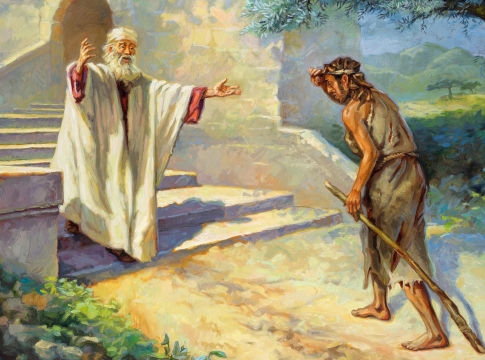
The events described in the gospels of Matthew, Mark, Luke, and John—the conception of God the Son as a baby, his teaching and healing career, his atoning death, and his glorious resurrection—are the focal points of Christianity. Having a trustworthy story of all this is essential because without Jesus’ atoning work and victory over death, our faith would be in vain. Furthermore, everyone of Jesus’ followers—including those of us born centuries later, like you and me—who have not had the opportunity to personally hear Jesus’ teachings, find great significance in his teachings. However, why is there not a single record of Jesus’ life, sayings, and miracles in the Bible? Why do they exist?
God guided the human authors to write the gospels
It was not a church council or panel of experts who came up with the notion to include four gospels; rather, it was God’s Spirit who led the Scriptures’ canonization process. All four of the gospels were added to the New Testament by the early church because they were acknowledged as inspired and authoritative works of the Holy Spirit. In the end, God intended for us to have four gospels, which is why we have four. However, there are a few reasons why this works out well for us.
Each gospel provides a unique perspective on Jesus
Despite their obvious similarities, the gospels were all written to offer a different viewpoint on the life and teachings of Jesus Christ. Since their readers weren’t all likely to be from the same demographic, each writer had a distinct theme they intended to highlight.
- In his writings, Matthew primarily addressed Jews, emphasizing that Jesus, the Son of David, was the Messiah that the Jewish people had been yearning for. Consequently, the genealogy that opens the Gospel of Matthew is followed by several allusions to Old Testament predictions that were realized in the life, death, and resurrection of Jesus.
- Jesus’ identity as God’s suffering servant is emphasized by Mark. He yielded himself totally to God’s will. Mark may have had this message primarily in mind for Christians who were being persecuted, as they were a group who needed it most.
- Theophilus, a gentile, was the main audience for the gospel of Luke (the second book was written for the same guy). In Luke, Jesus is portrayed as the Son of Man and the Redeemer of humanity at large, not only Jews. He emphasizes how his account is historically accurate.
- According to John, Jesus is the fully divine Son of God. John opens his first chapter by stating that Jesus was the creator of the world and that he took on human form in order to grant eternal life to everyone who believes in him. John focuses on how Jesus reveals the Father through multiple arguments and interviews, seven “signs” of Jesus’ true nature, and metaphors with profound theological meaning.
God provided us with four distinct narratives of Jesus’ life and mission so that we would have access to a wide range of knowledge. They each emphasize a different facet of the same reality, much like spotlights do.
Having multiple gospels increases their credibility
Since the facts concerning Jesus’ death and resurrection are of key importance for the Christian faith, the account thereof should be of the highest credibility. Having multiple independent, historically reliable accounts of the same events increases their reliability. This is a well-known principle in court cases. When God gave his laws to the people of Israel, He made clear that people could never be judged on the basis of one single witness. Such a judgment required at least two witnesses (see Deuteronomy 17:6, 19:15, Numbers 35:50). In a similar way, the four gospels are like four witnesses for the “case” of Jesus.
The differences and apparent contradictions of details between the gospels make clear that the authors did not get together before writing to make their accounts smooth and credible. They wrote independent books, even when they may have partly used the same sources.
Conclusion
Four gospels, as opposed to one, provide us with a more comprehensive understanding of Jesus and lend greater weight to the historical accounts of his earthly existence. Since the foundation of Christianity is Jesus’ mission of salvation, this is crucial information for Christians.





